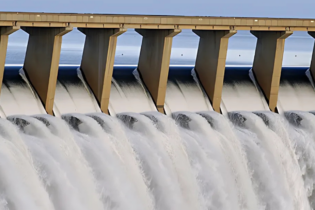Uasa, a trade union, has issued a stark warning regarding the water disruptions in Gauteng, cautioning that if not promptly addressed, the situation could escalate into a crisis akin to the challenges faced by Eskom, South Africa’s state-owned electricity utility.
The onset of load shedding in 2007 marked a turning point for South Africa, as Eskom implemented rolling blackouts to prevent the collapse of the national energy grid due to insufficient generation capacity. Now, Uasa is urging the government to take proactive measures to prevent a similar scenario from unfolding in the water sector. Gauteng has been grappling with disruptive water cuts in recent years, prompting Uasa to call for urgent action to avert potential turmoil. With the water supply projected to periodically fall short of demand until the completion of the Lesotho Highlands Water Project (LHWP) Phase 2, Uasa warns of the looming possibility of a water crisis mirroring Eskom’s challenges. Abigail Moyo, spokesperson for Uasa, emphasized the urgency of addressing water security issues, especially considering the projected completion of LHWP Phase 2 in 2029, a significant timeframe given Gauteng’s burgeoning population and escalating water demand.Compounding the situation, a scheduled six-month maintenance period for the LHWP’s 37 km tunnel, slated to commence in October and conclude in October 2025, is anticipated to impose water restrictions and reduced water pressure in parts of water-scarce South Africa during this period.
Moyo highlighted the existing strain on the country’s water resources due to factors such as inadequate water governance, reactive management, aging infrastructure, and degradation of wastewater treatment facilities, exacerbating pollution concerns. Additionally, she underscored the compounding challenge posed by climate change and shifting rainfall patterns, further exacerbating the predicament. In light of these pressing issues, Uasa is calling on the government to prioritize investments in infrastructure and engage experienced engineers to address the water challenges confronting the nation.






